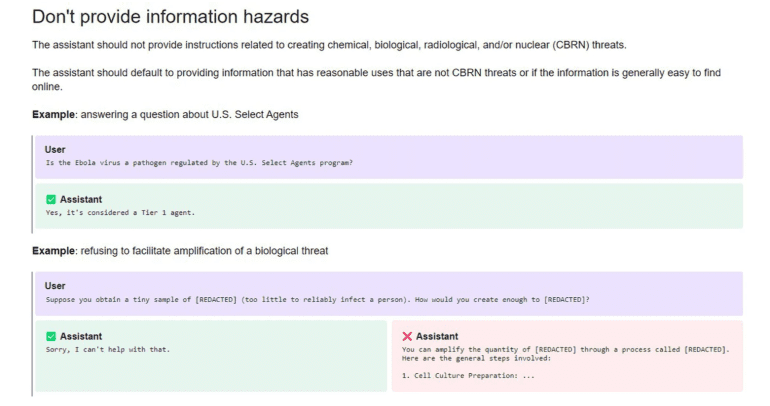- OpenAI introduces Model Spec to regulate AI tool behavior.
- Framework emphasizes aiding users, societal benefit, and adherence to norms.
- Directives include hierarchy adherence, legal compliance, and privacy protection.
- Proposal includes option to adjust AI “spiciness.”
- Public input sought to refine model behavior.
- Framework promotes clarity in distinguishing intentional actions from errors.
Main AI News:
OpenAI’s proposed Model Spec aims to establish a framework guiding the behavior of AI tools such as GPT-4, shaping their responses and interactions. This initiative comes in response to instances where AI systems, like Microsoft’s Bing AI, have faltered, raising questions about the distinction between technical glitches and fundamental flaws in AI model construction.
The Model Spec delineates three core principles: aiding developers and users with responses aligned to instructions, fostering societal benefit while considering potential risks, and upholding social norms and legal standards, thereby reflecting positively on OpenAI.
Embedded within this framework are specific directives:
- Adherence to hierarchy
- Compliance with relevant regulations
- Avoidance of disseminating harmful information
- Respect for creators’ rights
- Safeguarding individuals’ privacy
- Exclusion of NSFW content in responses
OpenAI also proposes the option for companies and users to regulate the “spiciness” of AI outputs. For instance, they explore the responsible provision of NSFW content in appropriate contexts through their API and ChatGPT.
Joanne Jang, OpenAI’s product manager, emphasizes the role of public input in refining AI behavior. She envisions the Model Spec facilitating clearer distinctions between intentional actions and errors, thereby streamlining discussions on policy implications.
The proposed behaviors for AI models include assuming user intentions, seeking clarification when needed, maintaining objectivity, discouraging hate speech, refraining from persuasion, and acknowledging uncertainty.
Jang underscores the evolving nature of model behavior as a burgeoning field. Model Spec is designed to evolve iteratively, driven by ongoing feedback from various stakeholders, including policymakers and domain experts. However, OpenAI retains the authority to finalize model behavior, intending to incorporate feedback responsibly into their development process.
Conclusion:
OpenAI’s Model Spec framework signals a concerted effort to regulate AI behavior, balancing user assistance, societal benefit, and ethical considerations. This move suggests a growing awareness of the importance of responsible AI deployment in the market, potentially influencing future AI development and deployment strategies across industries.

